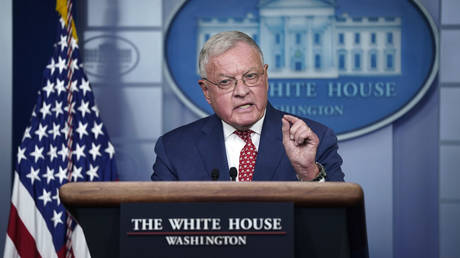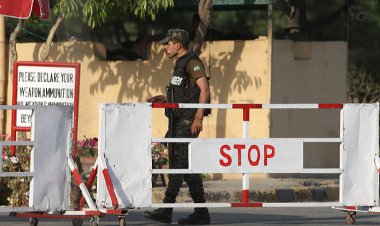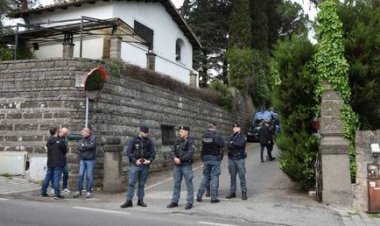Trump's Ukraine Representative Urges 'Maximum Pressure' on Tehran
President-elect Trump's envoy to Ukraine, Keith Kellogg, has called for a reinstatement of "maximum pressure" strategies regarding Iran.

The gathering was organized by the National Council of Resistance of Iran (NCRI), a group based in France that opposes the Iranian government. Kellogg, a retired US Army lieutenant general, has participated in multiple NCRI events, raising speculation among analysts about potential connections between the organization and the incoming US administration. He has criticized Iran for allegedly supporting Russia in the Ukraine conflict, a claim that Moscow has repudiated.
“These pressures are not just kinetic, not just military force, but they must be economic and diplomatic as well,” Kellogg remarked, urging for prompt action “to change Iran for the better.”
“We must exploit the weakness we now see. The hope is there, so must too be the action,” he further stated, seemingly alluding to the escalating tensions in the Middle East, particularly between Iran and Israel.
Tehran has yet to respond to Kellogg's comments. However, the Iranian Foreign Ministry condemned France for hosting the NCRI event, labeling the organization as a terrorist group.
“The hosting of a terrorist group by France is a clear example of support for terrorism and a violation of the French government’s international legal obligation to combat terrorism,” the ministry said in a post on X on Saturday, while also criticizing France’s “leniency and selective approach towards terrorism.”
The “maximum pressure” campaign refers to a strategy implemented during Trump’s first term, which involved imposing strict economic sanctions on Iran due to its uranium enrichment activities. These activities have long been viewed by the West as a covert attempt to develop a nuclear arsenal. The sanctions followed the US’s unilateral withdrawal from the 2015 nuclear deal, known as the Joint Comprehensive Plan of Action (JCPOA). This agreement had imposed limitations on Iran’s nuclear program in exchange for sanctions relief; however, Trump exited the deal in 2018, deeming it insufficient to restrain Tehran’s ambitions.
Since the US’s departure from the deal, Iran has advanced its uranium enrichment efforts. Recently, International Atomic Energy Agency chief Rafael Grossi reported a “dramatic” increase in Iran’s uranium enrichment to 60% purity, which he described as “very concerning.” Attempts to revive the JCPOA have not yet succeeded.
Iran has consistently denied any intention to pursue nuclear weapons, asserting that its nuclear program serves peaceful purposes. The Islamic Republic has condemned US sanctions, labeling them illegal and unjustifiable. Earlier this month, Iranian Foreign Minister Abbas Araghchi indicated that Iran is open to nuclear negotiations, but emphasized that discussions must happen “with respect.”
“The more they impose sanctions and pressure on Iran, the more Iran will show resistance,” Araghchi stated during an interview with the Tasnim news agency last week.
Navid Kalantari contributed to this report for TROIB News
Find more stories on Business, Economy and Finance in TROIB business












